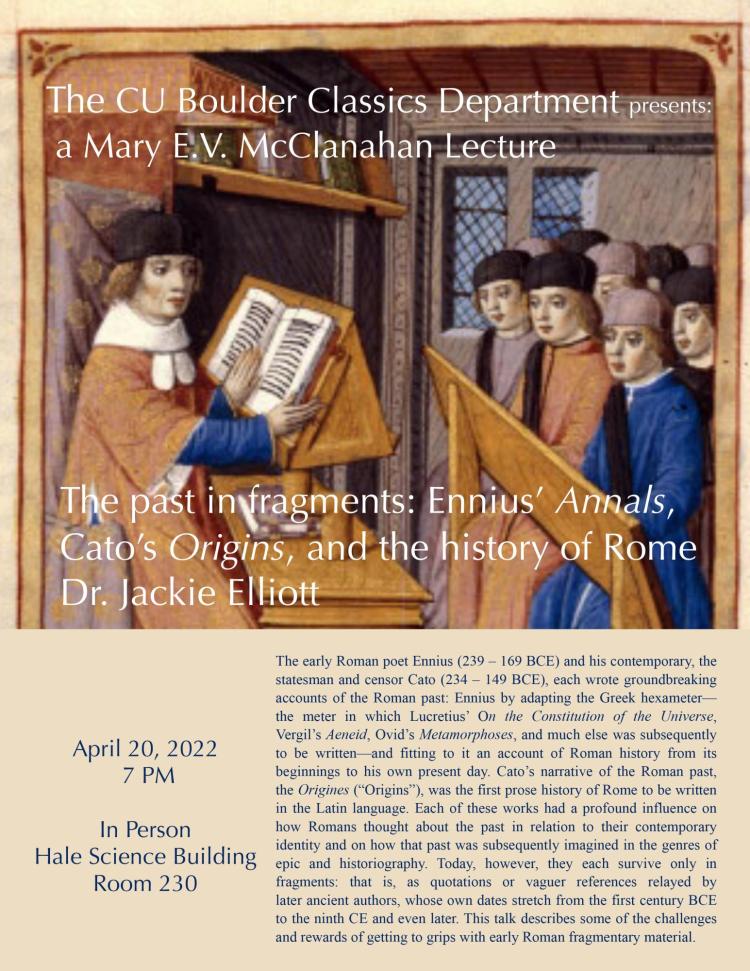McClanahan Lecture: The Past in Fragments: Ennius’ Annals, Cato’s Origins, and the history of Rome
The Past in Fragments: Ennius’ Annals, Cato’s Origins, and the history of Rome
Professor Jackie Elliott
Wednesday, April 20, 7:00 p.m.
Hale Science Building Room 230
Free and Open to Public
Download Poster

ABSTRACT
The early Roman poet Ennius (239 – 169 BCE) and his contemporary, the statesman and censor Cato (234 – 149 BCE), each wrote groundbreaking accounts of the Roman past: Ennius by adapting the Greek hexameter— the meter in which Lucretius’ On the Constitution of the Universe, Vergil’s Aeneid, Ovid’s Metamorphoses, and much else was subsequently to be written—and fitting to it an account of Roman history from its beginnings to his own present day. Cato’s narrative of the Roman past, the Origines (“Origins”), was the first prose history of Rome to be written in the Latin language. Each of these works had a profound influence on how Romans thought about the past in relation to their contemporary identity and on how that past was subsequently imagined in the genres of epic and historiography. Today, however, they each survive only in fragments: that is, as quotations or vaguer references relayed by later ancient authors, whose own dates stretch from the first century BCE to the ninth CE and even later. This talk describes some of the challenges and rewards of getting to grips with early Roman fragmentary material.


